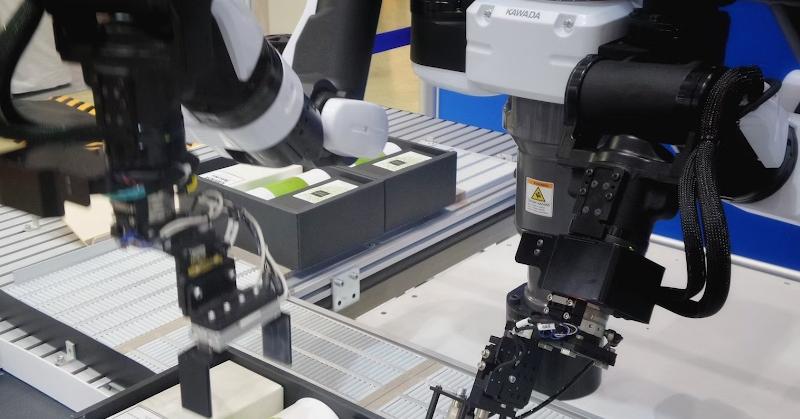It is an indisputable fact that Artificial Intelligence (AI) is the major technological innovation of the 21st century. Based on imitating human intelligence, AI can automate repetitive tasks, provide accurate results, improve problem-solving, and so much more.
It is expected that the worldwide AI market will exponentially grow in the coming years, with its value being $136.55 billion in 2022. As enhanced interfaces disrupt the business landscape, many people are concerned that their jobs might become redundant.
After all, which company would want to miss out on the opportunity to secure precise results and top-notch quality at affordable costs? If you’re a C-level executive wondering whether to hire an AI or human assistant or a professional concerned about their job, fret not!
This article will clear all your doubts, offering four compelling reasons why AI is still nowhere close to humans.
Empathy and Emotional Intelligence
As aforementioned, AI “imitates” human intelligence. While the technology may mimic a human-like intellect, it painfully falls short in terms of emotional understanding. Companies across industry verticals place immense importance on an employee’s emotional quotient (EQ).
This is primarily because no task is ever done in isolation of human company (interpersonal relationships). Moreover, the components of EQ are among the most vital skills needed to survive in a workplace defined by collaboration. These include self-awareness, motivation, self-regulation, social skills, and empathy.
Think about it – can you expect these five from inanimate technology (even if it were to appear in human form)? Even a human executive without EQ becomes intolerable after some time. Simply possessing good analytical and technical skills is inadequate to advance one’s workplace reputation.
This is especially true of job roles involving direct communication with customers. The modern consumer has high expectations from a brand. They demand exclusive, personalized service that includes the human element. While AI may provide the right answers, it can never address grievances from a place of deep understanding and compassion. Now that’s some major food for thought!
Critical Thinking and Adaptability
If you wish to get a predefined set of tasks done on a recurring basis, AI is your ideal solution. However, only a human executive assistant can handle ambiguous and complex scenarios. Let’s face it – no situation is ever predictable in the business world.
For instance – AI may help produce factory-line products, but if the same fails to satisfy customer expectations, it won’t give you any ideas for improvement. You may use algorithms and predictive analytics to foresee customer expectations based on buying behaviors and patterns.
But, it is a human’s independent thought that leads to meaningful innovation. If things suddenly go downhill, only a human can analyze the situation based on logic and evidence (even emotions) to offer circumstantial solutions.
Also, C-Suite Assistants states that even gathering the right information requires asking relevant questions. This process requires critical analysis and understanding of context. Sadly, AI is incapable of both.
Again, critical thinking and adapting to a situation is vital from the customer front. Suppose a customer is terribly upset with a brand’s product or services. The last thing they want to hear is a robotic automated response that doesn’t help their unique case.
A human executive will tactfully handle their complaints so as to calm them down unless a resolution is available. This is true even for other areas – AI cannot proactively respond to any changes because it cannot detect any. The technology needs human intervention to adapt.
Communication and Natural Language Fluency
One need not be a student of linguistics to understand the profound impact language has in connecting people. The language we use is a means to convey our thoughts and emotions, but it’s not limited to words.
Meaningful communication is a result of delicate nuances like intonation of speech. If you’ve ever heard a bot narrate a story, you know how uninteresting (even annoying) it can be. There are hardly any emphases, grim pauses, excitement, or genuine sorrow in tone.
An AI executive assistant may offer correct grammar, good vocabulary, and even humor but their natural language fluency will never be at par with humans. This means AI cannot engage in meaningful conversations that require an understanding of context and tone adaptation.
Whether a job demands managing client interactions or developing compelling content, AI won’t match a human’s capacity for personalization and authenticity.
Building Relationships
The cornerstone of any relationship, even in the world of business, is trust. This is a uniquely human trait. AI may perform tasks with utmost accuracy but it takes more than technical uprightness to gain customer confidence.
Consider it as the difference between knowing about your customers and knowing them intimately. Technologies like AI can offer a world of insights through data like customer buying history, online activity, past purchases, etc.
However, only human interactions provide a deeper understanding of a customer’s preferences and pain points based on unique circumstances. Long-term business relationships are a combined result of timely service and personalized attention to detail.
While AI may offer the former, it fails miserably in providing the latter. As long as it’s a people’s business (which every company is practically involved in), human executives cannot be fully replaced.
Final Thoughts
The difference between AI and humans is like that between colors like black and grey and those on the color wheel. You need the former for stability and predictability but nobody wants to live in a world without yellows, blues, and greens.
A dash of excitement, a sprinkle of originality, and a spark of empathy are what make the business world go round. In each of the scenarios mentioned above, AI has the potential to enhance business outcomes when vetted by humans.
Similarly, humans when supported by AI become better equipped to meet customer demands in a cut-throat market. Since soft skills are invaluable assets for organizations, it’s unlikely that AI can score better than humans anytime soon.

